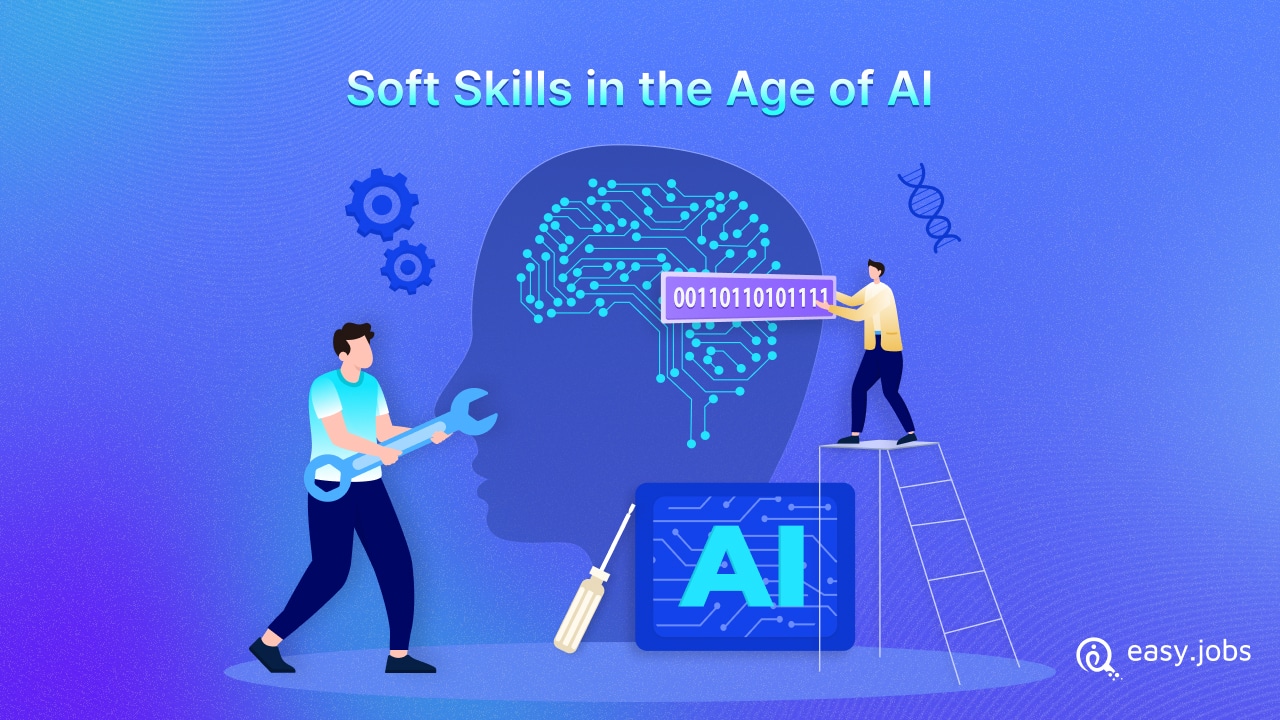As Artificial Intelligence (AI) transforms industries, acquiring the right skills has become crucial for professionals eager to thrive in this digital age. The AI era demands a blend of technical know-how, data proficiency, and adaptability as companies across sectors adopt AI to streamline operations, boost productivity, and innovate. For those aiming to stay relevant in a world driven by AI advancements, mastering essential skills is more than a career advantage—it’s becoming a necessity. This article explores the top skills essential for the AI landscape and recommends trending courses that empower professionals to keep pace with rapid changes, ensuring they are well-prepared for the future of work.
1. Data Science and Analysis: Foundations of AI
Data science and analysis serve as the backbone of AI, enabling machines to interpret vast amounts of information and derive insights. With data fueling most AI applications, skills in data science are indispensable for those seeking to work with AI. Data scientists and analysts use statistics, machine learning models, and data visualization to interpret data patterns and make predictions.
Top Courses:
- Coursera’s “Data Science Specialization” by Johns Hopkins University covers Python, statistical analysis, and data handling techniques.
- “Data Science MicroMasters” from edX (provided by UC San Diego) provides a rigorous introduction to big data and analytics, ideal for professionals wanting a strong data science foundation.
Data science expertise allows professionals to gain insights from data, helping organizations make better decisions and enhance efficiency in the AI era.
2. Machine Learning and Deep Learning: Core AI Technologies
Machine learning (ML) and deep learning (DL) form the core of AI technologies, enabling systems to learn from data and improve over time. ML skills are valuable across industries, from tech and finance to healthcare and retail. Professionals proficient in ML can develop predictive models, implement AI solutions, and fine-tune algorithms.

Top Courses:
- “Machine Learning” by Stanford University on Coursera is one of the most respected courses, covering fundamental algorithms and model evaluation techniques.
- DeepLearning.AI’s “Deep Learning Specialization” provides a comprehensive approach to neural networks and convolutional networks for computer vision.
By mastering ML and DL, individuals can contribute to AI-driven innovation, helping businesses improve customer experiences, optimize operations, and drive growth.
3. Artificial Intelligence Ethics and Policy

With AI’s growing influence on society, ethical considerations have become paramount. AI ethics is a field that explores the responsible use of technology, addressing concerns like data privacy, algorithmic bias, and transparency. Leaders, policymakers, and developers alike benefit from understanding AI’s ethical implications.
Top Courses:
- “AI For Everyone” by DeepLearning.AI on Coursera is accessible for all levels and introduces ethical concepts, bias reduction, and data privacy.
- “Ethics of AI” from MIT on edX provides an in-depth examination of ethical frameworks for responsible AI development.
AI ethics helps professionals implement fair, transparent, and accountable practices that build trust and promote sustainable AI applications.
4. Natural Language Processing (NLP): Enhancing Human-Computer Interaction

Natural Language Processing (NLP) is revolutionizing how machines interpret and respond to human language. This skill enables AI systems to understand, generate, and process natural language, creating applications like chatbots, virtual assistants, and language translation services. NLP is essential for businesses seeking to enhance customer service and automate communication.
Top Courses:
- “Natural Language Processing with Python” on DataCamp covers the essentials of text mining, sentiment analysis, and language models.
- “NLP Specialization” by DeepLearning.AI on Coursera explores advanced topics, such as transformers and attention mechanisms used in modern NLP.
NLP expertise helps professionals develop AI tools that improve user experiences, streamline support systems, and drive customer satisfaction.
5. Big Data Management: Harnessing the Power of Large Datasets
Big data management involves processing and organizing enormous datasets, making them accessible and actionable for AI models. Skills in big data are valuable for handling complex data environments, crucial for companies relying on AI for analytics, forecasting, and strategic decisions.
Top Courses:
- “Big Data Specialization” by UC San Diego on Coursera introduces Hadoop, Spark, and data processing techniques.
- “Data Engineering with Google Cloud” on Coursera teaches professionals how to create data pipelines, manage data flow, and scale big data solutions.
With big data skills, professionals are equipped to manage AI projects involving vast information sources, creating a solid foundation for data-driven decision-making.
6. Programming Skills: Essential Tools for AI Development
Programming forms the basis of AI development, with languages like Python and R being particularly popular due to their simplicity and powerful libraries. Proficiency in programming enables professionals to design, test, and deploy AI models, making coding a vital skill for AI aspirants.
Top Courses:
- “Python for Everybody” by the University of Michigan on Coursera is a beginner-friendly course that covers Python basics with a focus on data manipulation.
- “R Programming” on DataCamp is ideal for those who want to work with statistical data, a key component of AI.
Programming expertise empowers professionals to build, modify, and optimize AI models, adding versatility to their skill sets.
7. Cloud Computing and AI Integration
Cloud computing has become integral to AI, providing scalable solutions for data storage, computation, and deployment of AI models. Skills in cloud platforms allow professionals to deploy AI applications cost-effectively and securely, enhancing business agility.

Top Courses:
- “AWS Machine Learning” on Coursera introduces Amazon’s cloud platform, focusing on AI tools for model training and deployment.
- Google Cloud’s “Machine Learning Engineering” on Coursera covers model integration with Google Cloud tools for seamless, scalable deployment.
Cloud computing skills ensure professionals can build AI systems that are efficient, scalable, and accessible from anywhere, aligning with today’s remote-friendly work environment.
8. Computer Vision: Powering Visual Recognition and Analysis
Computer vision is a branch of AI focused on enabling machines to interpret visual information, used extensively in fields like healthcare, autonomous driving, and security. Skills in computer vision empower professionals to create applications that “see” and respond to their environments, driving real-time decision-making.
Top Courses:
- “Computer Vision Specialization” by DeepLearning.AI on Coursera covers essential topics, including object detection and image segmentation.
- “Introduction to Computer Vision” by Microsoft on edX offers foundational skills and covers Azure tools for practical applications.
With computer vision skills, individuals can develop AI applications that transform sectors through automation, detection, and visual data analysis.
9. Project Management for AI Implementation
AI projects are often complex, requiring a structured approach to ensure timely, efficient, and impactful implementation. Project management skills are essential for overseeing AI initiatives, from ideation to deployment, and ensuring alignment with business goals.
Top Courses:
- “AI Project Management” by edX combines technical knowledge with project management, tailored specifically for AI projects.
- “Agile Project Management” on LinkedIn Learning is ideal for managing iterative AI projects, emphasizing flexibility and efficiency.
Strong project management skills allow professionals to lead AI initiatives, guiding teams to meet deadlines, optimize resources, and achieve project objectives.
10. Soft Skills: Communication, Collaboration, and Adaptability
In the AI era, soft skills remain invaluable. Professionals need effective communication, adaptability, and teamwork to work with cross-functional teams and translate complex AI concepts into actionable strategies. Soft skills facilitate collaboration between AI experts and non-technical stakeholders, enhancing project success.

Top Courses:
- “Effective Communication for AI Professionals” on Coursera teaches communication strategies specific to technical fields, bridging gaps with non-technical teams.
- “Developing Your Emotional Intelligence” on LinkedIn Learning hones emotional intelligence, crucial for leadership in AI-focused roles.
Soft skills make it possible for AI experts to work harmoniously in teams, explain complex ideas, and adapt to AI’s rapid advancements.
Conclusion: Preparing for a Future in AI with Essential Skills
As the AI era unfolds, professionals equipped with relevant skills can contribute to innovation, productivity, and competitiveness in various industries. By mastering data science, machine learning, ethics, and communication, individuals position themselves as valuable assets in an AI-driven workforce. Today’s trending courses provide structured, accessible ways to develop these competencies, ensuring that learners are well-prepared to navigate the demands of an AI-powered future.
In the fast-evolving AI landscape, continuous learning is the key to success. Staying updated with trending courses helps professionals develop critical skills, adapt to new AI applications, and thrive in a dynamic job market.

Leave a Reply